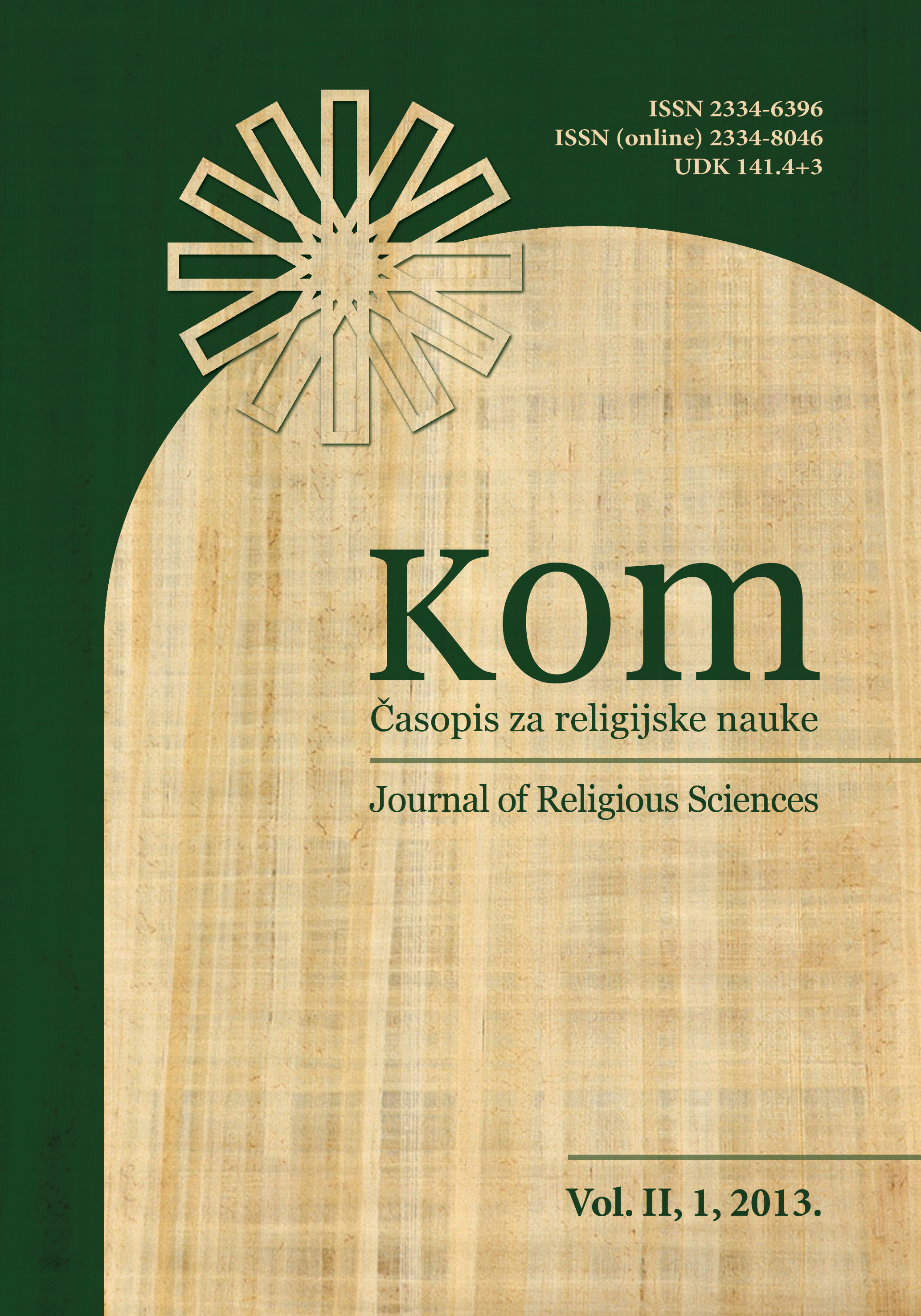Third of the Two: Resolving the Inclusive-Exclusive Dichotomy in Religious Thought
Third of the Two: Resolving the Inclusive-Exclusive Dichotomy in Religious Thought
Author(s): Shuja Ali MirzaSubject(s): Metaphysics, Islam studies, Comparative Studies of Religion
Published by: Centar za religijske nauke "Kom"
Keywords: religion;Islam;intra-religious exclusivism;mysticism;wisdom;perfect man;third of the two;
Summary/Abstract: The study at hand will apply itself to the former intra-religious exclusivism and will expound upon the consequent inclusive-exclusive dichotomy within a religion. In the case of the inclusive-exclusive dichotomy, it is wisdom which tells us where to inclusively enter into dialogue with people of other faiths, and also where to exclusively try to propagate our faith as the truth that is better for the people of other faiths to accept. Modern digressions and debates on the validity of Dialetheism aside, the resolution to this paradox is found in the metaphysical and mystical doctrines of religion. The mystical approach, outwardly and simply, is to repeat the paradox and to deny, implicitly, the absolute truth to either side. In so doing, it encourages man to go beyond the dualisms of discursive rational thought and to arrive at a unitive understanding — by way of a direct knowledge or “tasting” — of the fundamental matters of being. Moreover, it attempts to overcome the dichotomy implicit in the knower-known paradigm and to achieve a vision of the unity that comprehends and composes all reality. Hence, the supra-rational mystical resolution of this paradox is best accomplished by the perfect man who transcends the realm of multiplicity until he is united with his Maker in such a fashion that he becomes God’s eye, face, and hand on earth, and in short, His vicegerent (khalifah) and highest manifestation. Wisdom demands that true intellectuality and objectivity come into play — an objectivity that allows for transcendence towards the “third of the two” and an intellectuality that knows that it does not know all. For it is only an intellect that is existentially present to the sacred perplexity (tahayyur) at play in the realm of manifestation that can remain eternally wondrous and perpetually in awe of its Creator. Ultimately, it is only a person possessing such an intellect that can be a real Muslim, a true slave of God, and a bona fide 'abd Allah.
Journal: Kom: časopis za religijske nauke
- Issue Year: II/2013
- Issue No: 1
- Page Range: 45-58
- Page Count: 13
- Language: English

